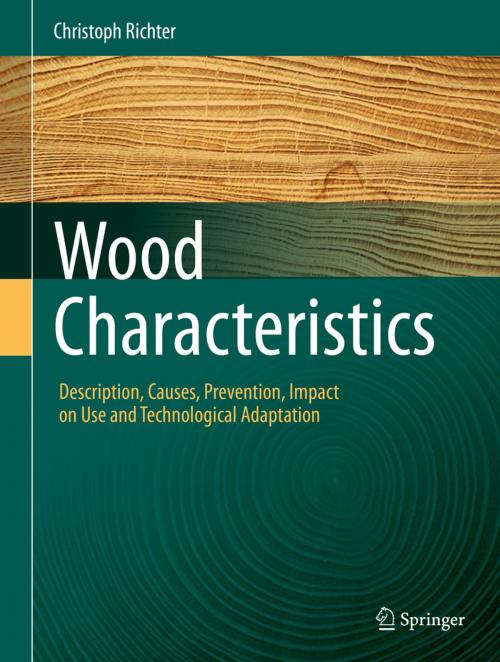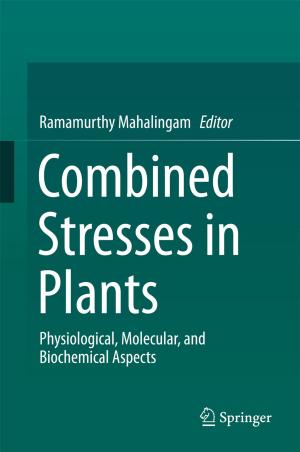Wood Characteristics
Description, Causes, Prevention, Impact on Use and Technological Adaptation
Nonfiction, Science & Nature, Nature, Plant Life, Trees, Technology, Agriculture & Animal Husbandry| Author: | Christoph Richter | ISBN: | 9783319074221 |
| Publisher: | Springer International Publishing | Publication: | November 10, 2014 |
| Imprint: | Springer | Language: | English |
| Author: | Christoph Richter |
| ISBN: | 9783319074221 |
| Publisher: | Springer International Publishing |
| Publication: | November 10, 2014 |
| Imprint: | Springer |
| Language: | English |
This book offers a broad range of options for technically adapting, handling and processing wood with specific wood characteristics. It starts by discussing wood anatomy and the general factors leading to the formation of wood characteristics. The individual characteristics are then categorized into four groups: 1. Wood characteristics inherent in a tree’s natural growth. 2. Biotically-induced wood characteristics. 3. Abiotically-induced wood characteristics. 4. Types and causes of cracks.
New to this English edition is a comparison of wood characteristics found in trees from the boreal, temperate and tropical climate zones. The results show a clear relationship between the effects of sunshine duration, the vertical and horizontal angle of radiation, and crown coverage and the way wood characteristics form.
The book addresses all those who work with wood professionally: foresters, gardeners and arborists who want to be able to observe a living tree and identify its internal features and the causes of its prominent wood characteristics. Based on the findings described in this book they can determine how to avoid certain undesirable characteristics, or alternatively how to promote favorable ones as the tree and stand grow. Botanists and dendrologists will learn how wood characteristics arise, and how they affect living trees and wood products. The needs of wood technologists seeking to prevent adverse wood characteristics from influencing wood processing, or to enhance favorable wood characteristics, are also addressed.
This book offers a broad range of options for technically adapting, handling and processing wood with specific wood characteristics. It starts by discussing wood anatomy and the general factors leading to the formation of wood characteristics. The individual characteristics are then categorized into four groups: 1. Wood characteristics inherent in a tree’s natural growth. 2. Biotically-induced wood characteristics. 3. Abiotically-induced wood characteristics. 4. Types and causes of cracks.
New to this English edition is a comparison of wood characteristics found in trees from the boreal, temperate and tropical climate zones. The results show a clear relationship between the effects of sunshine duration, the vertical and horizontal angle of radiation, and crown coverage and the way wood characteristics form.
The book addresses all those who work with wood professionally: foresters, gardeners and arborists who want to be able to observe a living tree and identify its internal features and the causes of its prominent wood characteristics. Based on the findings described in this book they can determine how to avoid certain undesirable characteristics, or alternatively how to promote favorable ones as the tree and stand grow. Botanists and dendrologists will learn how wood characteristics arise, and how they affect living trees and wood products. The needs of wood technologists seeking to prevent adverse wood characteristics from influencing wood processing, or to enhance favorable wood characteristics, are also addressed.















